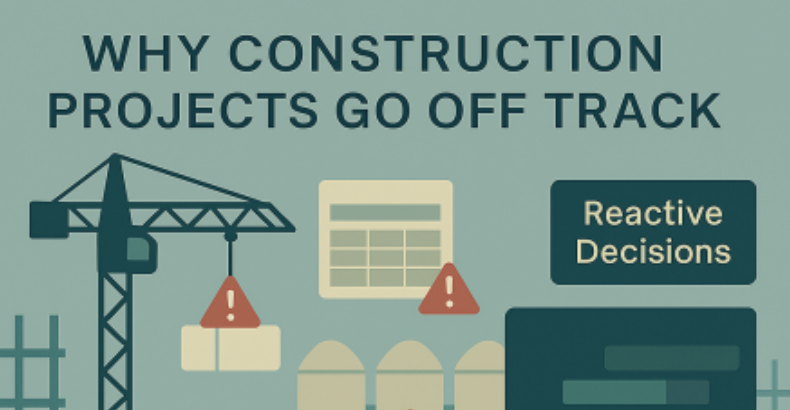
Construction Intelligence: How Real-Time BI Keeps Mega Projects on Track
Building a skyscraper, highway, or airport terminal isn’t just about concrete and steel – it’s about data. In today’s construction industry, real-time business intelligence (BI) is quickly becoming as vital as cranes and excavators. Known as Construction Intelligence, this approach uses data to predict problems before they arise, streamline operations, and ensure mega projects finish on time and within budget.
But how exactly does BI keep complex construction projects on track?
Let’s dive into the future of construction management.
Why Construction Projects Go Off Track
Before exploring solutions, it’s important to understand why large-scale construction projects so often run late or over budget:
- Poor Visibility: Teams operate in silos, and data from different subcontractors, suppliers, and project phases are disconnected.
- Reactive Problem Solving: Issues are addressed after they arise, not proactively.
- Manual Reporting: Reliance on spreadsheets and outdated progress reports delays decision-making.
- Changing Conditions: Weather, supply chain disruptions, and regulatory changes introduce constant risks.
Without real-time insights, project leaders are often making decisions based on outdated information.
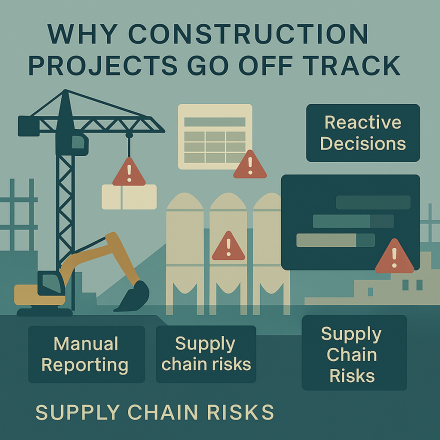
What is Construction Intelligence?
Construction Intelligence is the application of real-time BI tools, data platforms, and analytics to the construction industry. It empowers project managers and executives with up-to-the-minute insights into:
- Progress tracking
- Resource allocation
- Safety incidents
- Budget forecasts
- Supply chain status
- Workforce productivity
Rather than relying on weekly reports, teams use dashboards and automated alerts to make decisions in real time.
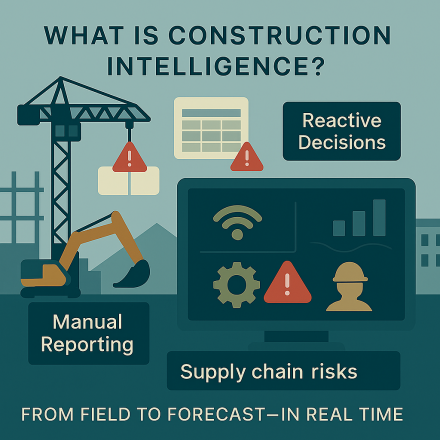
What is Construction Intelligence?
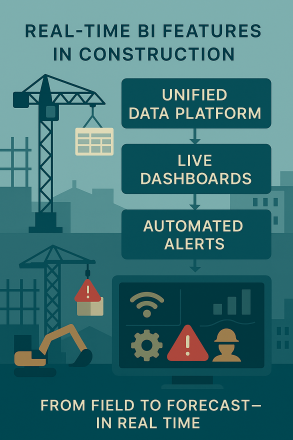
Unified Data Platform
All data-whether from field sensors, equipment telematics, or ERP systems-flows into a centralized platform like Power BI, Fabric, or Azure Synapse, breaking down data silos.
Live Dashboards
Project status, daily productivity, and resource usage are displayed on real-time dashboards, accessible to site teams and executives alike.
Automated Alerts
AI-powered anomaly detection triggers alerts when material usage spikes, productivity dips, or critical equipment goes offline.
Predictive Analytics
By analyzing historical patterns, the system forecasts potential delays, cost overruns, or safety incidents-enabling proactive intervention.
Benefits of Construction Intelligence
- Faster Decision-Making: Real-time data reduces delays caused by manual reporting.
- Enhanced Visibility: Stakeholders gain a 360° view of progress and risks.
- Cost Control: Live budget tracking and predictive insights minimize financial surprises.
- Improved Safety: Monitoring equipment status and workforce activity reduces on-site hazards.
- Productivity Optimization: Identifying bottlenecks in real time helps adjust resources quickly.
Real-World Example: Mega Project in Action
Consider a $1 billion highway construction project:
- Before BI: Site supervisors reported progress weekly via spreadsheets. Delays weren’t identified until they became critical.
- With Construction Intelligence: Sensors track equipment usage, materials deliveries update dashboards automatically, and executives monitor cost forecasts daily. AI flags a potential delay due to equipment downtime, prompting immediate action.
The result? The project finishes ahead of schedule, saving millions in avoided costs.
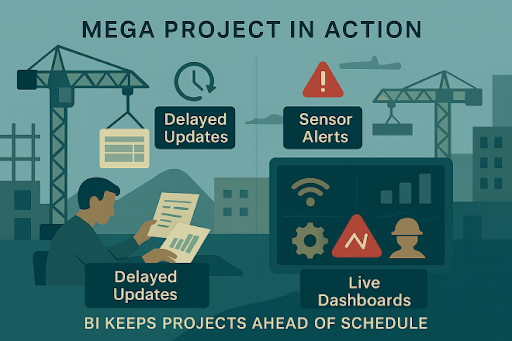
The Road Ahead: AI and IoT Integration
Looking forward, Construction Intelligence will evolve further:
- Drones and IoT Sensors will feed live site data into BI platforms.
- AI Models will predict risks earlier and optimize resource allocation automatically.
- Digital Twins will enable virtual project simulations to test scenarios before real-world execution.
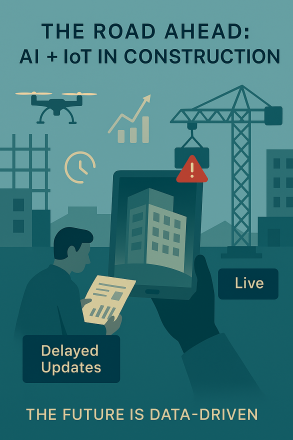
Conclusion: Building Smarter, Not Just Bigger
Mega projects are high-risk, high-reward ventures. In this landscape, data-driven decision-making isn’t optional-it’s mission-critical. By embracing real-time BI and Construction Intelligence, project leaders can transition from reactive management to proactive control.
After all, in modern construction, what gets measured in real time gets managed better.
The future of construction isn’t just physical-it’s digital.
